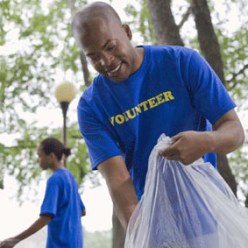Using volunteer workers who are under 18 years of age is a common church practice. However, there are a few considerations to make.
- It is imperative that at least one adult be present at all times if minors are used as volunteer workers in any program or activity involving minors. Ideally, two adults should be present, so that if one of them must be absent temporarily, the other will be there.
- If a minor is injured, the church may be legally responsible on the basis of negligence if the injury resulted from the church’s failure to exercise a reasonable degree of care in the selection or supervision of its workers. Courts often look to the practices of local charities, and sometimes national charities, in establishing a reasonable standard of care. As a result, it is often helpful for church leaders to contact other youth-serving charities in the area to ascertain their practices and policies on specific issues. Using local affiliates of national charities is the best practice. If you would like to use minors to work with younger children, ask some of these other charities about their response to this question. Do they use minors as volunteer workers in programs involving younger children? If so, what limits to they impose, and what policies have they enacted? By aligning your church’s practices to that of several charities, you will go a long way in demonstrating that your church exercised a sufficient degree of care and therefore was not negligent.
- Every church should carefully screen volunteer workers. But, how is this done? You obviously cannot perform criminal records checks on persons under 18 years of age, and even for persons who are 18 or 19 a criminal records check will have limited significance. You really need to approach the screening of adolescents in a different manner. Let me suggest two options. First, obtain two or three reference letters from persons who have seen the applicant interact with other minors (this would include church workers, coaches, school teachers, scout leaders, etc.). You want an opinion from such persons about the applicant’s suitability for working with minors. Obviously, if you receive two to three references from such persons, you have very compelling evidence that you exercised reasonable care in the selection process, and in the final analysis, this is the standard by which you will be judged if your church is sued for the molestation of a child by an adolescent worker. The bottom line is that you cannot conduct criminal records checks on such persons, but you must take other steps to demonstrate reasonable care.
Second, contact local youth-serving charities such as the public school district, Boy/Girl Scouts, YMCA, Boys/Girls Clubs, etc. and ask them what screening they use for adolescent workers. Be sure to make a record of each contact. By basing your screening policy on “community practice” you will be reducing your risk of liability based on negligent screening.
- One final point. If you compensate minors who work with children in your church, then you need to be aware that you may need to pay them the minimum wage (under state or federal law, whichever is greater), and that state or federal child labor laws may apply. Both of these issues need to be carefully addressed to ensure compliance with the law.
- This article first appeared in Church Law & Tax Report, September/October, 2007.




